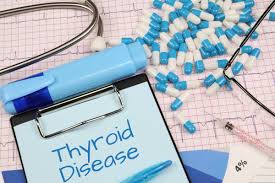Internal medicine doctors specialize in diagnosing and treating a range of conditions in adults, including disorders of the thyroid gland. Thyroid dysfunction, such as hypothyroidism or hyperthyroidism, can significantly affect energy levels, metabolism, and overall well-being. Specialists identify key symptoms that may indicate thyroid problems and guide patients toward effective management and treatment options. Here are some signs and diagnostic methods of thyroid dysfunction:
Recognizing Thyroid Hyperactivity
An overactive thyroid, known as hyperthyroidism, develops when the thyroid gland produces excessive amounts of the thyroxine hormone. This leads to a higher metabolic rate, which means the body’s processes speed up. Symptoms can develop gradually or suddenly, and include:
- Unexplained weight loss, even if your appetite increases or you eat more frequently
- A rapid or irregular heartbeat
- Anxiety, agitation, or restlessness
- Emotional symptoms, such as irritability
- Tremors, a slight, persistent shake in your hands or fingers that interferes with daily activities like writing, using utensils, or holding objects
- Increased sensitivity to heat
- Changes in bowel movements, particularly more frequent or loose stools
- Women may observe lighter or less regular menstrual periods
Identifying Thyroid Hypoactivity
If your thyroid does not produce enough hormones, your body’s metabolism decreases and slows down bodily functions. This makes fatigue a common symptom of thyroid hypoactivity. You may sleep more than usual yet still feel worn out and lacking in energy throughout the day. Muscle weakness and aches affect activities requiring physical strength, sometimes limiting your ability to perform daily tasks.
Digestive issues such as constipation can become more frequent, contributing to abdominal discomfort, and weight gain may occur, despite no noticeable changes in your diet or exercise habits. For some, the skin also becomes dry, rough, or scaly, and you might notice your hair thinning or becoming coarse and brittle. Facial puffiness, especially around the eyes and cheeks, is sometimes visible in the mirror.
For women, menstrual periods may become irregular or much heavier. Childbearing individuals with untreated hypothyroidism are at risk for complications during pregnancy, highlighting the need for accurate diagnosis and ongoing care. Left untreated, hypothyroidism can also affect fertility, making it harder to conceive.
Measuring Thyroid Function
Evaluation for thyroid dysfunction starts with a thorough medical history and a detailed conversation about your symptoms.Internal medicine doctors look for patterns that link your concerns to possible thyroid or other endocrine problems. During the physical examination, your doctor will feel the front of your neck to assess the thyroid gland’s size, texture, and presence of nodules or tenderness. Observing your heart rate and reflexes provides additional clues.
Laboratory blood tests are key to determining a diagnosis. Standard tests measure the thyroid-stimulating hormone (TSH), free thyroxine (T4), and triiodothyronine (T3). High TSH levels indicate the thyroid is underactive, while low TSH levels suggest it is overactive. Your doctor may order further blood work for thyroid antibodies if autoimmune thyroid disease is suspected.
Treating Thyroid Disease
Management of thyroid disease varies based on whether your thyroid is overactive or underactive, as well as the underlying cause. For hyperthyroidism, treatment options include medications to reduce hormone production. Beta-blockers might help control symptoms by slowing a rapid heart rate and reducing anxiety. Some cases require radioactive iodine therapy, which shrinks the gland and lowers hormone output over time. Surgery to remove part or all of the thyroid is used if other treatments are unsuitable or if cancer is found.
For hypothyroidism, doctors often recommend taking a daily oral synthetic thyroid hormone to replace the deficient hormones. The dose is individualized based on blood test results and your body’s response. Regular monitoring helps maintain the correct hormone levels and supports symptom relief. It also monitors progress and adjusts therapy if your needs change due to age, medication changes, or shifts in overall health.
Visit an Internal Medicine Doctor
If you notice signs of thyroid dysfunction or have concerns about your symptoms, contacting a trusted internal medicine doctor is a significant first step. They can provide a comprehensive evaluation, help identify the root cause of your symptoms, and develop a care plan tailored to your needs. Schedule an appointment to discuss your concerns and explore the next steps for your care today.

